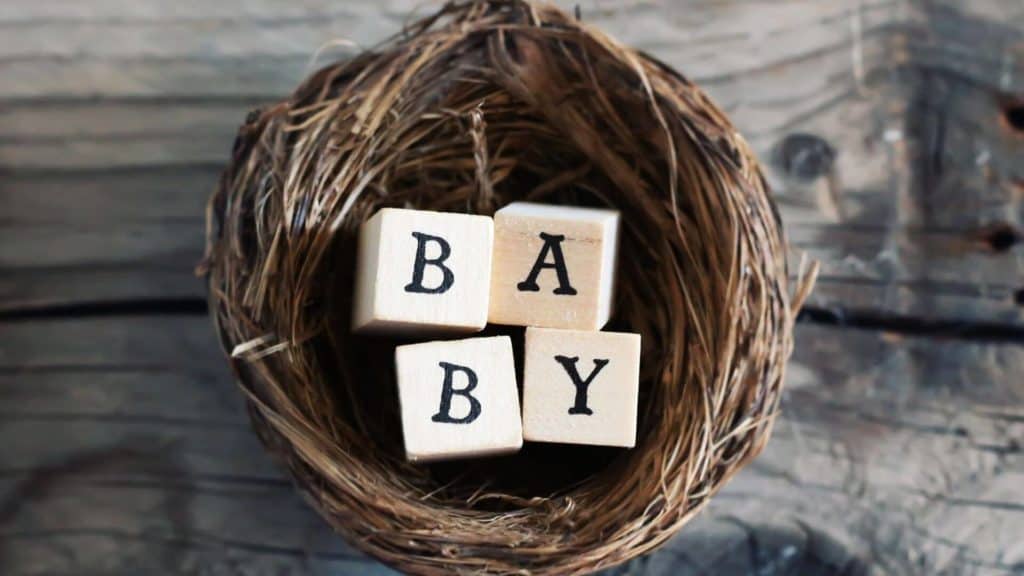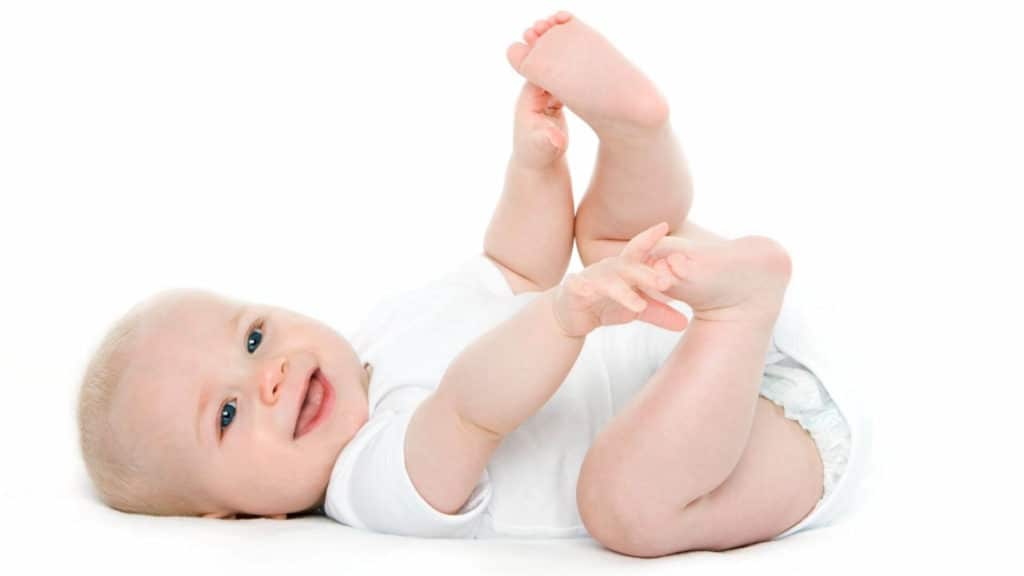Jewish Baby Naming: Choose Hebrew Names for Bris or Brit Bat
Jewish babies are given a Hebrew name shortly after they are born. For baby boys, there is an urgency because the Jewish baby naming usually coincides with the bris (brit milah in Hebrew) which occurs exactly eight days after he is born. Jewish baby girls, on the other hand, don’t have quite as strict a timeline as they will typically be given their Hebrew name at a baby naming ceremony (brit bat in Hebrew). The naming ceremony can be scheduled at the parent’s discretion and is typically done in the first few months of the baby’s birth.

Why are Jewish babies given Hebrew names?
Hebrew names are used at the various Jewish lifecycle events throughout a person’s life. There are four of these events in particular in which the Hebrew name is heavily featured.
Birth:
Once a baby is born, Jewish parents are not only tasked with choosing the baby’s name, but also, the Hebrew name.
Bris (Brit Milah): For baby boys, the Hebrew name will need to be chosen before the bris which occurs eight days after the birth. During the bris, a mohel typically performs the circumcision with the child held by the grandparent or other honored guest. The mohel then says the blessing over the wine and gives the baby boy his Hebrew name. Oftentimes, the baby boy’s parents will explain how they chose their child’s Hebrew name. If the baby is named after someone, it is common for the parents to speak about that person and the important qualities that person embodied, share stories, or even photos if you have them.
Read More: Bris Outfits: What Should Your Baby Wear At The Bris?
Naming Ceremony (Brit Bat): Baby girls are often given a Hebrew name during a Brit Bat, or a baby naming ceremony. If you belong to a synagogue, the ceremony will most likely be held during a Friday night or Saturday morning Shabbat service. The rabbi or cantor will call up the parents and the baby girl and chant the Birkat HaKohanim, often referred to in English as the Priestly Benediction, which is God’s blessing for the Children of Israel. Otherwise, the ceremony can be held in the home or at another public or private venue.
B’nai Mitzvah
When the child becomes a Bar or Bat Mitzvah at age 12 or 13, the boy or girl is called up to read from the Torah for the first time by his or her Hebrew name.
Marriage:
At a Jewish wedding, the couple signs their Hebrew names on a Ketubah, the Jewish marriage contract.
Death:
When a person dies, the Hebrew name will be spoken during the funeral service and burial. It also can be inscribed on the tombstone.

Jewish Baby Naming Rules
How do you choose a Hebrew name for your baby?
Many times a Hebrew name is chosen to honor a deceased family member. If you would like to recognize a person in that way, it is common to pick the child’s Hebrew name from names beginning with the first letter of the name of the person you are honoring. Ashkenazic Jews (descendants from Northern and Eastern Europe) don’t name their baby after someone who is living. On the other hand, Sephardic Jews (from Middle Eastern and Spanish ancestry) often do.
A Jewish boy or girl can also have a Hebrew name based on his or her given name. The parents may select a Hebrew name based on the initial letter of the name or if their given name has a Hebrew counterpart (ex. Isaac/Yitzchak or Rebecca/Rivka), then they have an obvious choice.
There is also no rule where you have to choose a name based on some personal connection. If there is Hebrew name that is really calling out to you — perhaps you like the meaning of the word in Hebrew — then that name is the right one for you. And you don’t need to select just one name. It is very common to choose two or possibly even three.
Read More: Hebrew Boy Names & Meanings: A HUGE List and Hebrew Girl Names & Meanings: A HUGE List
What blessings are said at a bris or baby naming ceremony?
The Kiddush (blessing over the wine), Shehecheyanu, Priestly Benediction, and the Hamotzi are prayers you can expect to recite at the gathering. Of course, a bris is more involved – there is a circumcision happening – so there will be more movings parts. You’ll want to welcome everyone and thank your friends and family for coming and you may want to include a few personal readings as well to personalize the ceremony. And of course, you’ll explain why you chose the baby name you did, which tends to be everyone’s favorite part! Well, that and the deli sandwiches…
Is there food served at a bris or baby naming ceremony?
There will be food served at a bris or at a baby naming ceremony that is held in the home. Typical fare includes deli platters to make sandwiches, lox and bagels, fresh fruit, etc. and it’s often served buffet style. If the baby naming ceremony is held during a Friday evening service, there is typically an Oneg (a mini celebration after the service) where cookies, challah, and grape juice or wine is served, courtesy of the synagogue, but there is not a formal meal.
Do you bring gifts to a bris or baby naming ceremony?
It is common to bring something to a bris or baby naming ceremony, but if the new mom just had her baby shower, it doesn’t have to be extravagant. Technically, tradition says that it is bad luck for Jewish parents to have a baby shower or decorate the nursery, but it’s a bit antiquated since childbirth is much less risky than it once was. Consequently, lots of Jewish people still have showers. You can bring flowers or a dessert for the luncheon after the ceremony or baby items like children’s books and onesies.
How do you greet the parents and the family at a Jewish baby naming ceremony?
Mazel Tov! Pronunciation: Mah-zuhl Tahv
Mazel Tov means congratulations which is also perfectly acceptable to say.
An important note: Before the baby is born, you say the phrase B’sha’ah tovah (pronounced be-sha-ah toe-vah) which literally means “in a good hour”. Since the expectant mother has not delivered the baby yet, it’s more appropriate to say the words which mean “all in good time” as opposed to a premature congratulations.
Do you have any other questions about a Jewish baby naming? Let us know in the comments below! And, don’t forget to check out the other posts on the BMA blog!
Hebrew Boy Names & Meanings: A HUGE List
Hebrew Girl Names & Meanings: A HUGE List
Bris Outfits: What Should Your Baby Wear At The Bris?

